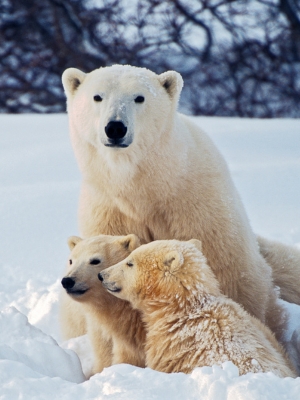Born Free USA supports Compassionate Conservation, which involves, among other things, taking into meaningful consideration the needs, concerns, and well-being of local human populations. Not only should wildlife conservation efforts not harm human populations, they should ideally help by providing people with more advantageous economic opportunities. This principle informs our work and our positions on issues impacting wildlife and is another reason Born Free USA strongly opposes trophy hunting.
Proponents of trophy hunting argue that trophy hunting provides vast economic opportunities for local communities and a surge of income for the nations that allow it. In truth, the economic benefits of big game hunting are wildly exaggerated and pale in comparison to the economic possibilities of eco-friendly tourism.
Myths vs. Facts about the Economics of Trophy Hunting
MYTH: Trophy hunting supports around 53,000 jobs across eight African nations (Botswana, Ethiopia, Mozambique, Namibia, South Africa, Tanzania, Zambia, and Zimbabwe).
FACT: Trophy hunting has not created that many jobs.
Trophy hunting only supports around 7,500 – 15,500 jobs in these nations, which have a combined total population of around 290 million people.
MYTH: Trophy hunting is a big part of nations’ GDP.
FACT: Trophy hunting is a tiny part of GDP.
It only accounts for around 0.03% of GDP.
MYTH: Trophy hunting revenues are invested back in local communities where hunts take place.
FACT: Only a small portion of trophy hunting revenue makes it to local communities.
According to a 2013 study by Economists at Large, only around 3% of revenue generated by trophy hunting stays in local communities for welfare, education, and other community-based programs. The vast majority goes in the pockets of the trophy hunting outfitters and to governments.
Looking to a New Model: Eco-Friendly Tourism
Born Free USA promotes eco-friendly tourism as an alternative to trophy hunting. Not only does this kind of tourism protect wildlife, it also has the potential to generate far more income and opportunity for human communities.
FACT: Eco-friendly tourism generates more jobs.
A 2009 study by IUCN found that safari tourism creates 39 times the number of jobs than big game hunting for an equivalent surface area.
FACT: Elephants and other wild animals are worth more alive than dead.
Studies have indicated that live elephant may be worth as much as $1.6M over his lifetime through income from photographic tourism, many times the fee typically paid by a trophy hunter to shoot a bull elephant, which is usually around $40,000-45,000.
Concern for the well-being and prosperity of human communities sits at the very heart of our work at Born Free USA. This is why we recognize that, when it comes to trophy hunting, local communities are on the losing end of the deal. Embracing eco-friendly tourist models benefits wildlife and people alike.
Keep Wildlife in the Wild,
Julie

 Dear Reader,
Dear Reader,